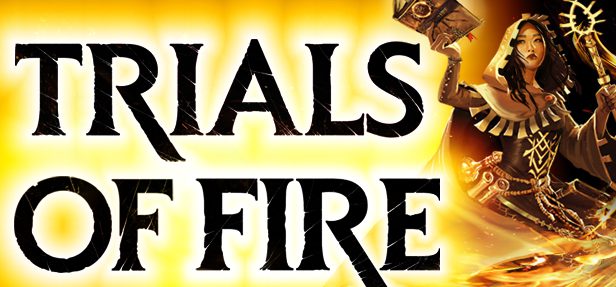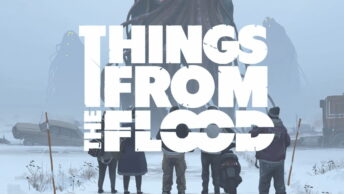An entertaining tactical deck-building title, Trials of Fire is the first that I’ve played in the genre that can truly compete with the heavyweight that is Slay the Spire.
Type: Single-player
Genre: RPG, Strategy
Developer: Whatboy Games
Publisher: Whatboy Games
Release date: 07 May, 2019


Overview
There was a time not so long ago that the mention of heavily board or card-style game mechanics was an instant no-go for me. Video games were a medium that was suited for more complex mechanics working behind the scenes, or so I thought until I started being exposed to some that showed a level of excellence and passion that far exceeded what I expected out of a tabletop-inspired game. I’ve played a number of these games recently (Slay the Spire perhaps being my favourite), and although I still prefer the social aspect of sitting around a table with friends and family, these strong entries into the genre have converted me into a believer that tabletop-themed gaming can also provide a fantastic single-player experience.
Trials of Fire is another strong entry that may very well give Slay the Spire a run for its money when it’s complete. It incorporates elements of tactical board and card gaming, but does so in a way that is adapted for an excellent PC experience. Deck-building is complex and there are many avenues for powerful synergy, but it is also spread out across a party of three characters, each with a unique deck based on their class. This and several other entertaining features resulted in my first session “accidentally” being about four hours long.
Every Tale Needs Heroes
Each character in your party starts with their rather underwhelming base deck. These cards allow them to perform their role as they should, more or less, though they don’t become particularly effective at it until you’ve replaced several of them with the superior cards that you get from leveling up. Due to the tactical nature of the game, there’s quite a variety, reaching from melee attacks, to buffs, to weirdly enjoyable forms of movement, and each advanced card option is unique for the class even if some of their starters are shared.
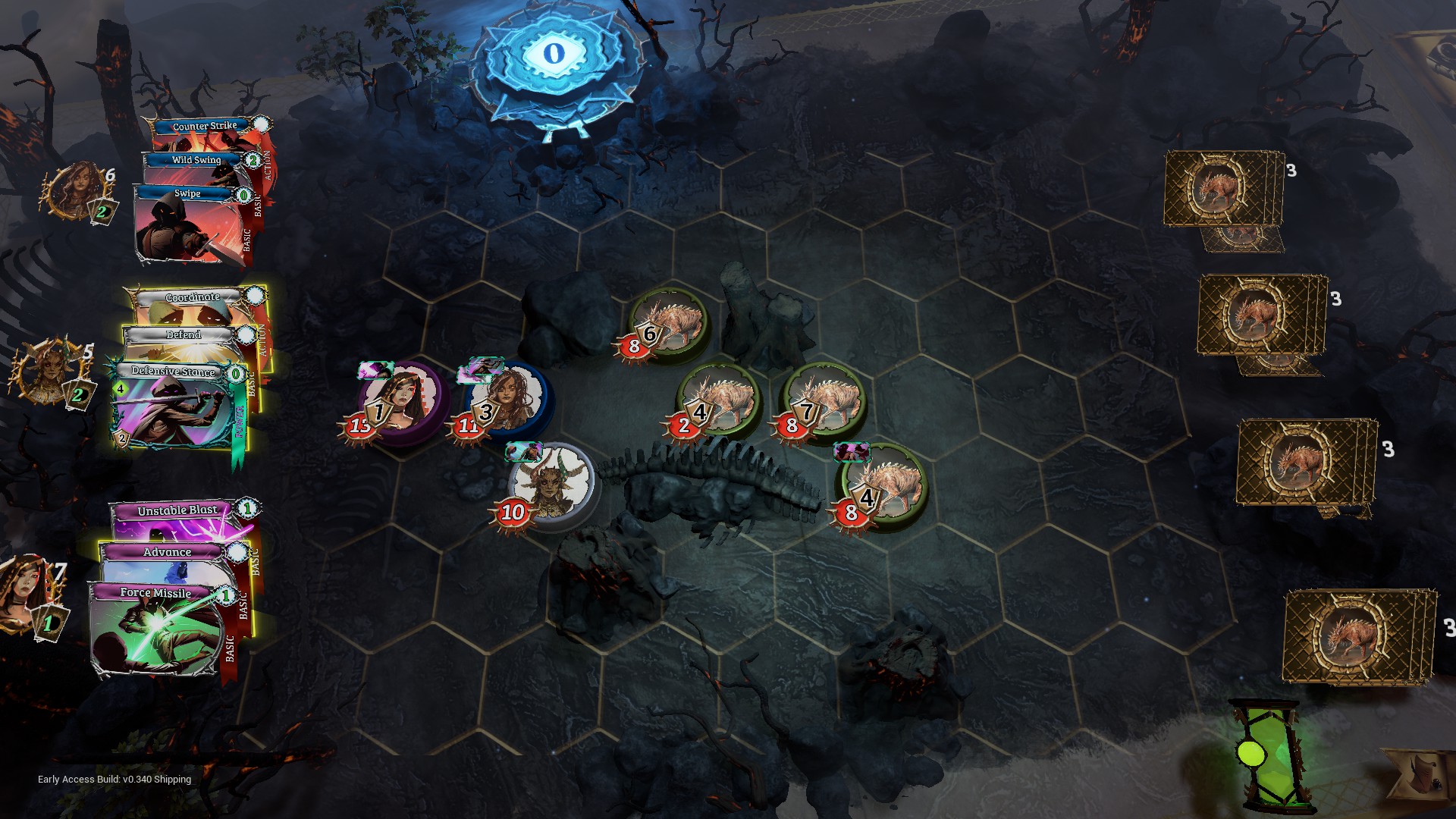
Classes are fairly numerous with seven being available currently while one more is scheduled for release soon, though you’ll need to unlock four of these via specific milestones. In my experience, they seem to be balanced quite well, and I’ve enjoyed playing with several different combinations of them.
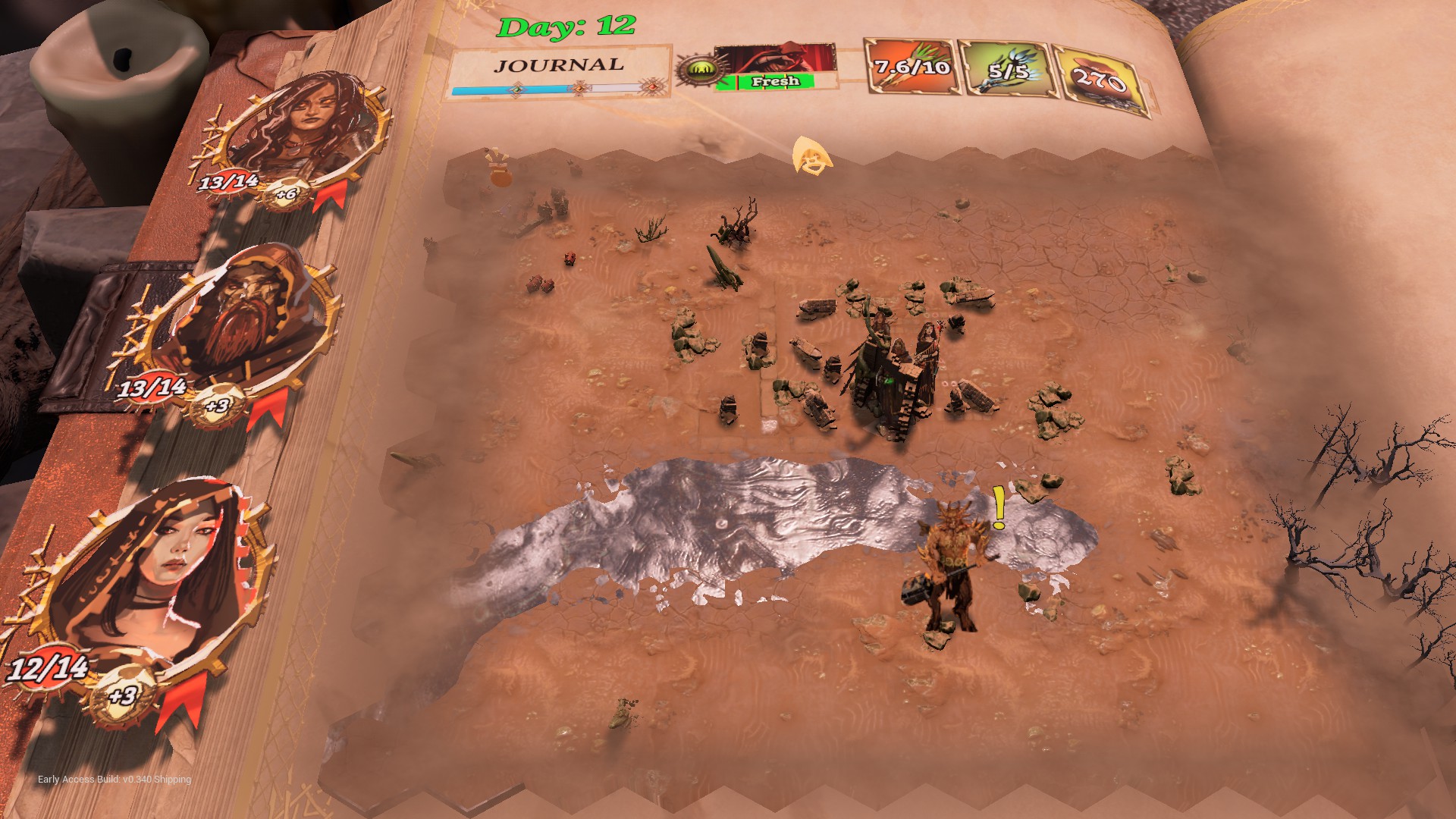
Equipment takes on an interesting role here as it provides both stats and cards for the character using it. Every class has plenty of slots for it, though they may vary on the specifics from one to the next. Armor pieces provide an armor value, which boosts the starting health of the character at the beginning of each battle, while non-armor pieces provide quality, which grants redraws for those times when your current hand just isn’t cutting it. Both provide cards for your deck, and higher tier items offer some of the best that you can obtain.
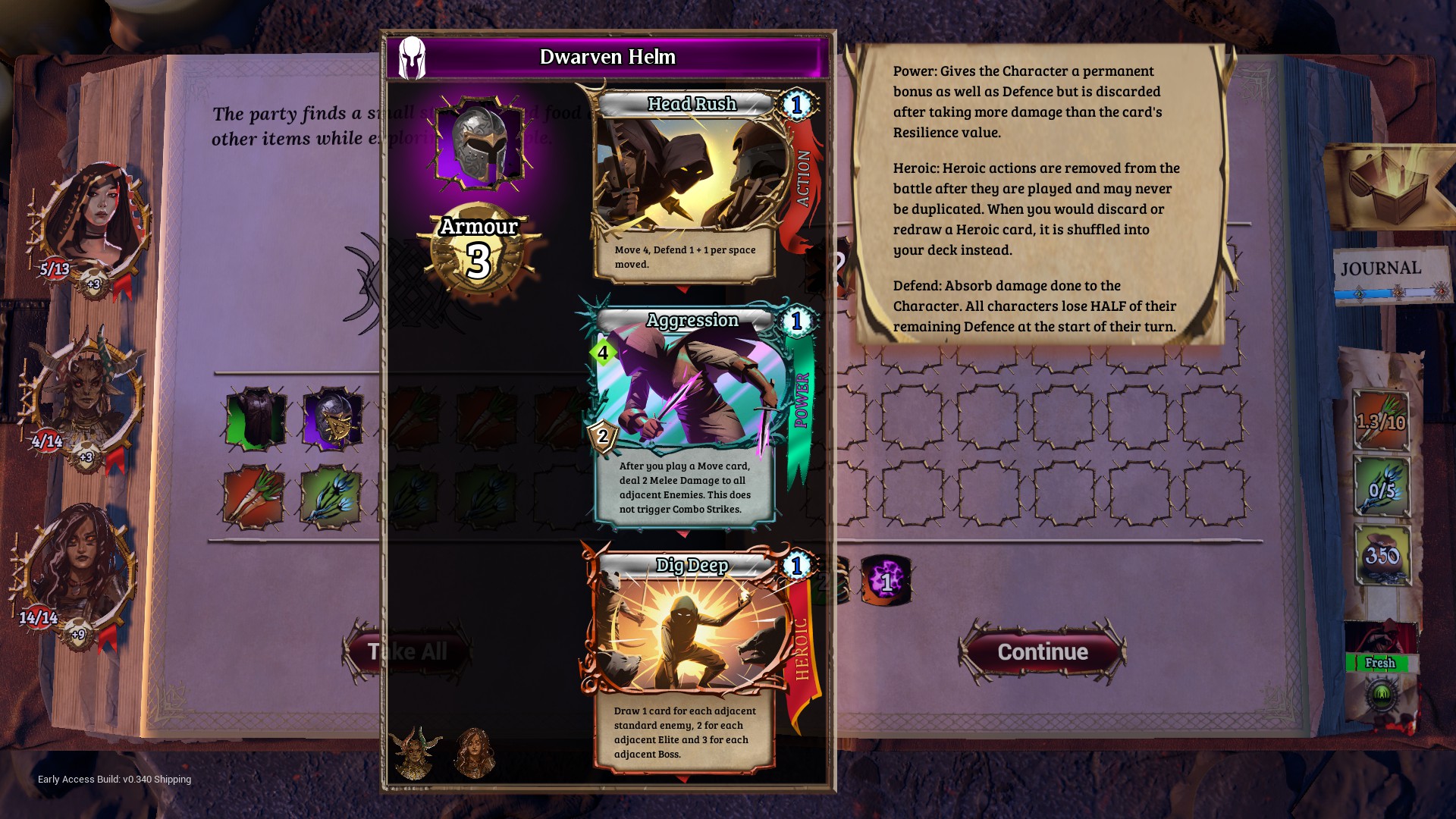
Do You Swing Your Sword With Purpose Or Wild Abandon?
There are a few ways to play Trials of Fire currently: stories, combat runs, and endless odysseys. I found the stories to be the most enjoyable as they add a roleplaying element where you’ll find yourself immersed in the lore of Ashe while making choices and developing your characters through them. You’ll travel across a treacherous map, engaging in tactical battles, helping (or taking advantage of) those in need, managing resources, and maybe even making a friend or two along the way. This mode allows camping which is an effective way to recover health and stamina (if this gets too low you suffer penalties that weaken your deck), but it also lets you craft new gear with resources, remove injury cards from your deck, eliminate cards that you don’t like from equipment, and move cards that you do like from equipment to your class’s deck.
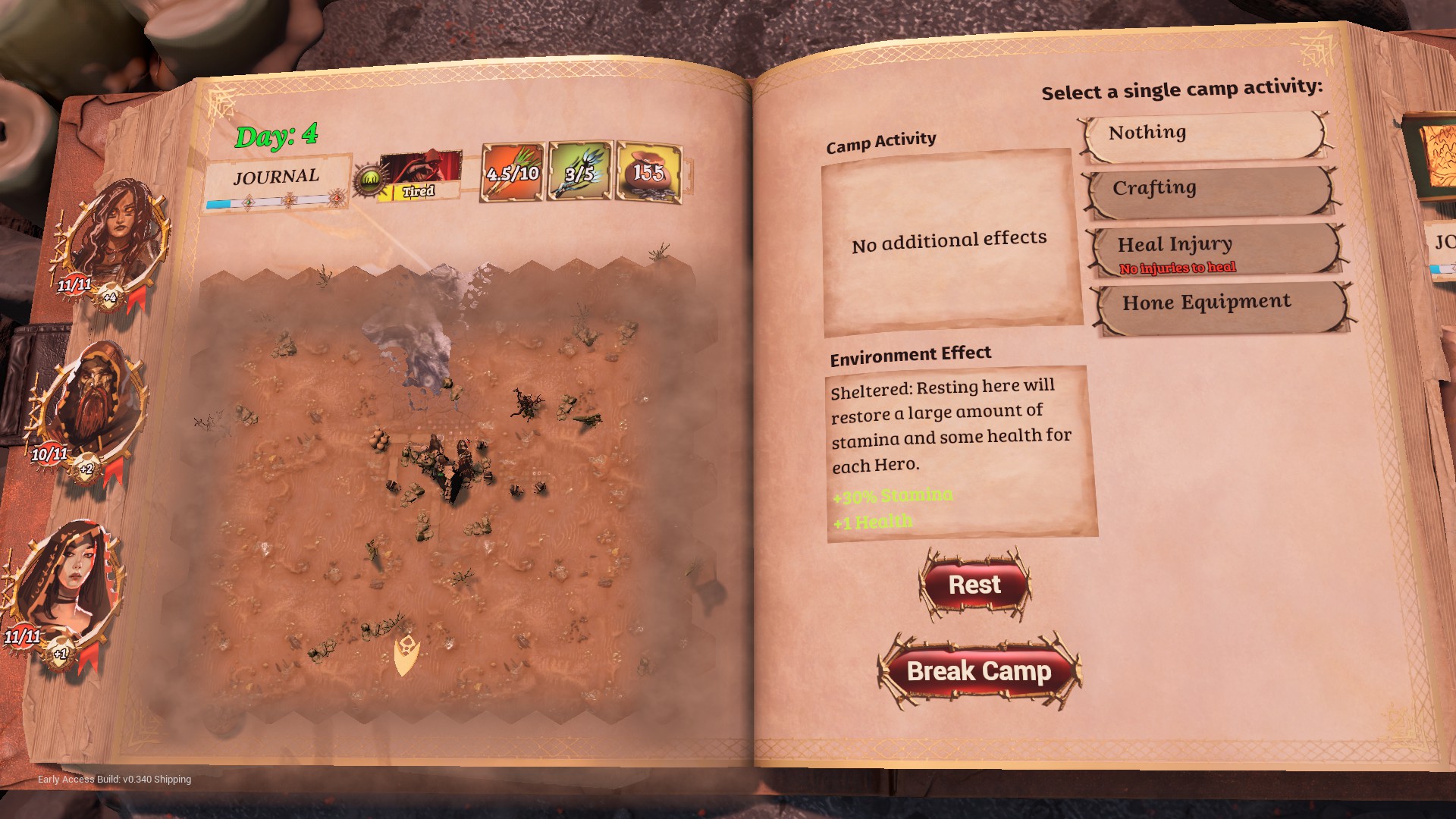
Combat runs do what you would expect them to do, and they consist of simply moving from one battle to the next with a choice of which enemy faction you would like to face off against next. There are “settlements” along the way to help you stay in fighting shape, and you’ll occasionally come up against a boss fight that has the potential to rough you up pretty solidly. There is no real story, but its the best way to experience the game if the narrative and lore are just filler for you.
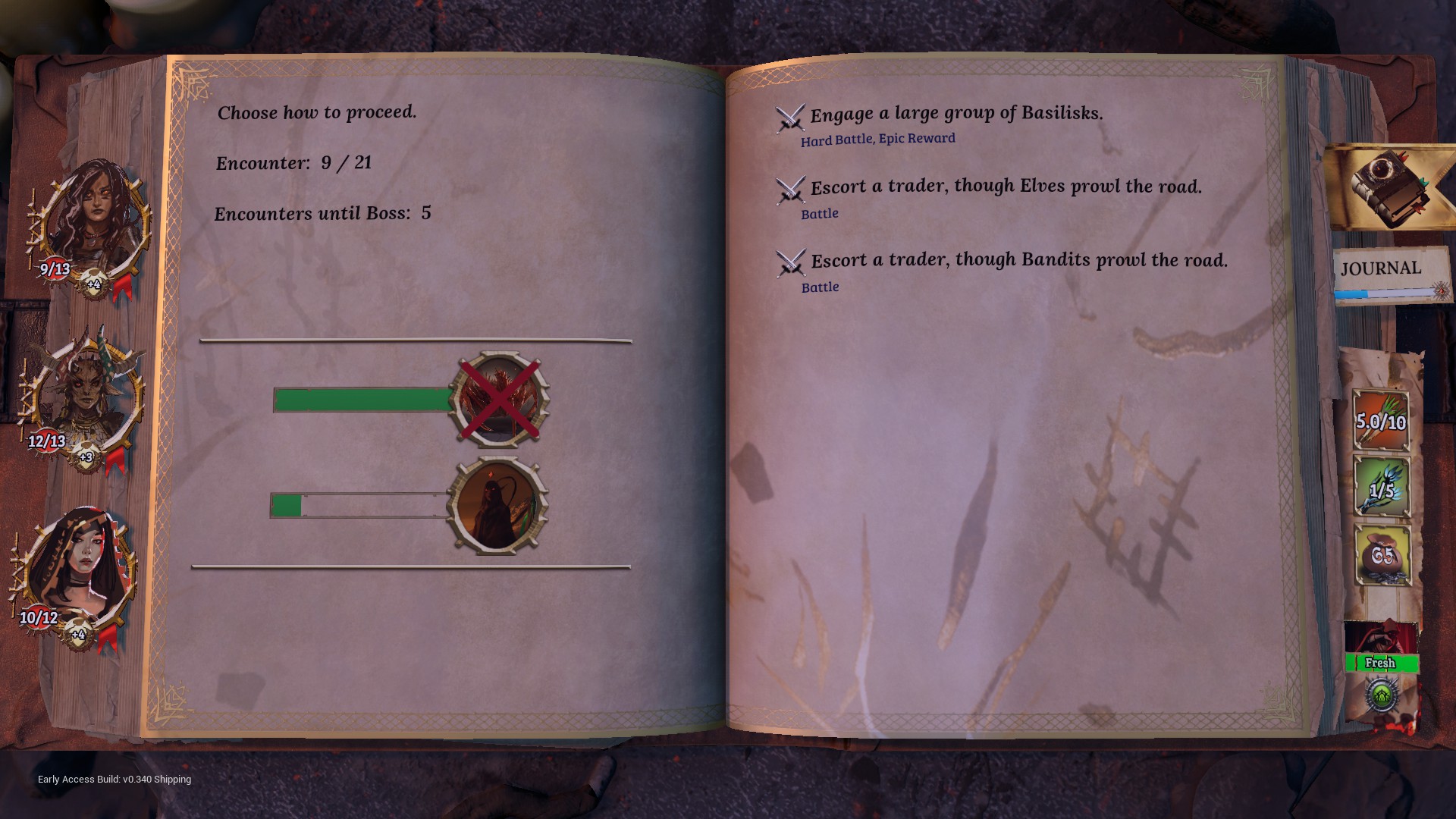
Endless odysseys are the ‘endless’ variation, offering a map and objectives that never run out, but that get progressively more challenging. This is basically a never-ending story mode without a story; the map and survival elements are present here.
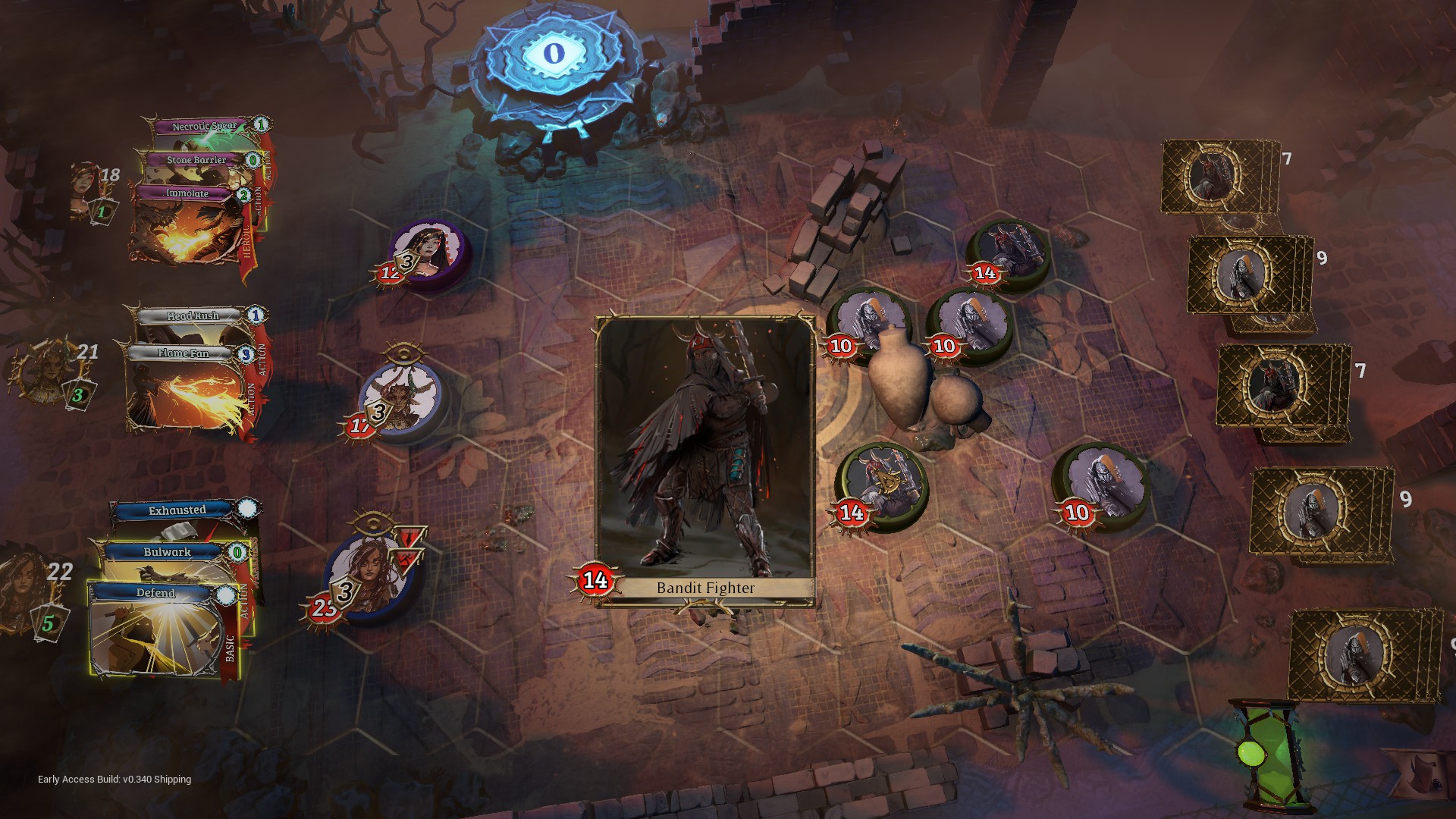
Ashe and Its Denizens
The world detailed by the lore of Trials of Fire is an intriguing one, and significantly deeper than I’d expected. A catastrophic event brought about by the careless use of magic by the elves has resulted in the Living World become a medieval-themed, post-apocalyptic wasteland known as Ashe. Any remaining reminders of the Living World are greatly valued. Several unique factions exist with varied decks that make each feel different not just narratively, but mechanically as well. I enjoyed reading about the world in the visual novel-like portions of the stories, though I did notice that even in just a few campaigns, I was already seeing the same events multiple times. I’m hoping this is an area that will receive a lot of development before its official release.
‘
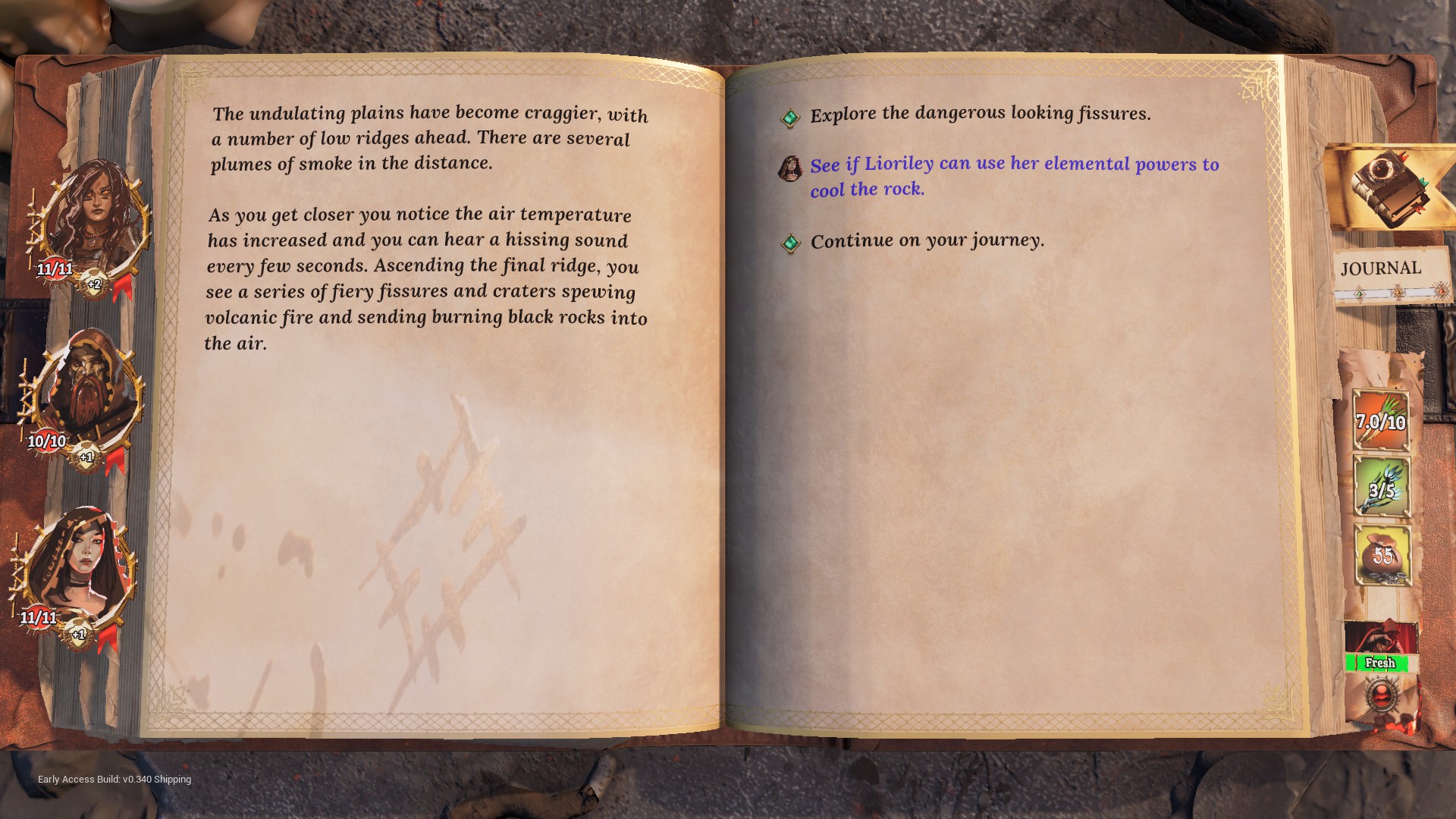
Verdict
Trials of Fire is already an experience that is well worth the time that I’ve put into it, and I’m still planning on going back for some more before its release. It has a solid legacy feel to it which grants it an impressive amount of replayability, and the gameplay is in a solid-state already. If the same level of passion is put into the rest of its development, Whatboy Games may be working on the next must-have digital tabletop experience for your library.

